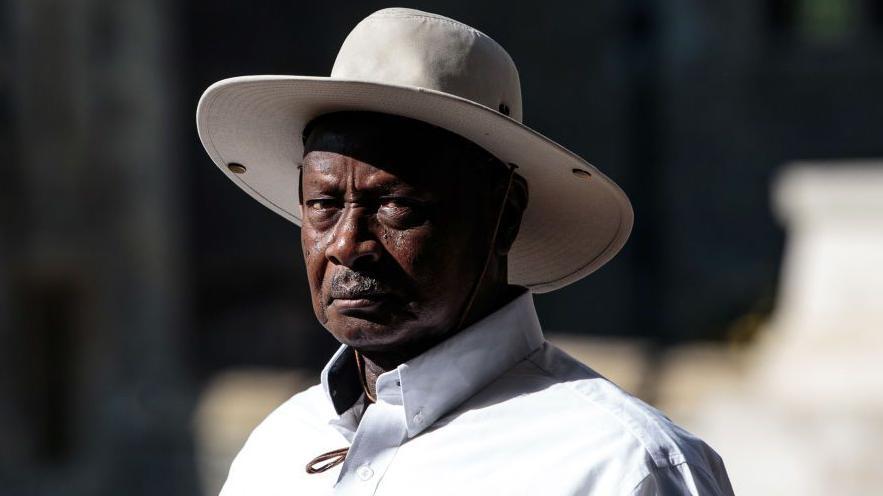Uganda’s President Yoweri Museveni, who has held office since 1986 and is now 80 years old, recently defended the practice of trying civilians in military courts amid criticism following the trial of opposition leader Kizza Besigye. Besigye, 68, is facing charges in a military court related to alleged possession of firearms and attempts to procure weapons from abroad—accusations he denies. His situation worsened with the announcement that he would remain in custody through Christmas due to postponements in his trial scheduled for January. Museveni asserts that such military trials are necessary for maintaining national stability when crimes entail firearms, arguing that civilian courts are often overwhelmed and slow to act.
In a post on X (formerly Twitter), Museveni addressed the legal challenges posed by some attorneys concerning the appropriateness of civilians being tried in military courts. He cited a law enacted in 2005 by his National Resistance Movement (NRM) to facilitate military trials due to increasing incidents of crime and terrorism involving guns. The law was reportedly a response to the inefficiencies plaguing civilian courts, which he claims struggle with a wide array of cases such as murder, assault, and land disputes. According to Museveni, rapid justice is essential for stability, particularly when dealing with armed criminals.
Besigye has consistently opposed the notion of being tried in a military tribunal, arguing that legitimate charges should be addressed in a civilian court. A prominent political opponent, he has faced Museveni in four presidential elections but has not participated in the 2021 election amid diminishing political visibility over the past few years. Besigye, a former personal physician to Museveni, has been detained numerous times throughout his political career without ever facing a conviction. After announcing his return to the political arena earlier this year to unify his divided party, Besigye has now found himself embroiled in legal struggles that activists and international human rights organizations deem unjust.
Human rights groups, including Human Rights Watch, have condemned the Ugandan government for utilizing military courts to detain political opposition members like Besigye, highlighting the insufficient due process afforded in these settings compared to civilian courts. Volker Türk, the UN human rights chief, noted that civilians subjected to military trials often face significant legal disadvantages. Reports suggest that the planning of Besigye’s recent arrest may have spanned several months, raising concerns about politically motivated actions by the government.
Critics of Museveni’s government have raised alarms over what they see as a systematic effort to silence dissent through military justice. The United Nations and various human rights organizations are calling for a cessation of what they describe as the “weaponization of military detention.” Such measures undermine democratic principles and threaten the rule of law, especially when it involves opposition figures who challenge Museveni’s long-standing regime. Despite these criticisms, Museveni stands firm in his belief that military courts play a crucial role in ensuring national security and addressing criminal activities effectively.
In conclusion, while President Museveni defends the use of military courts as a necessary means to maintain order in Uganda, the practice has attracted severe criticism from human rights advocates and legal experts who argue that it undermines fair trial rights. As Kizza Besigye continues to navigate his legal troubles, the broader implications of military trials for civilians remain a contentious topic. The Ugandan government faces increasing scrutiny both domestically and internationally, as calls for reform and the reinstatement of due process intensify. The evolving political landscape in Uganda, marked by struggles over leadership and the treatment of dissenting voices, is crucial to understanding the ongoing challenges within the country’s justice system.

